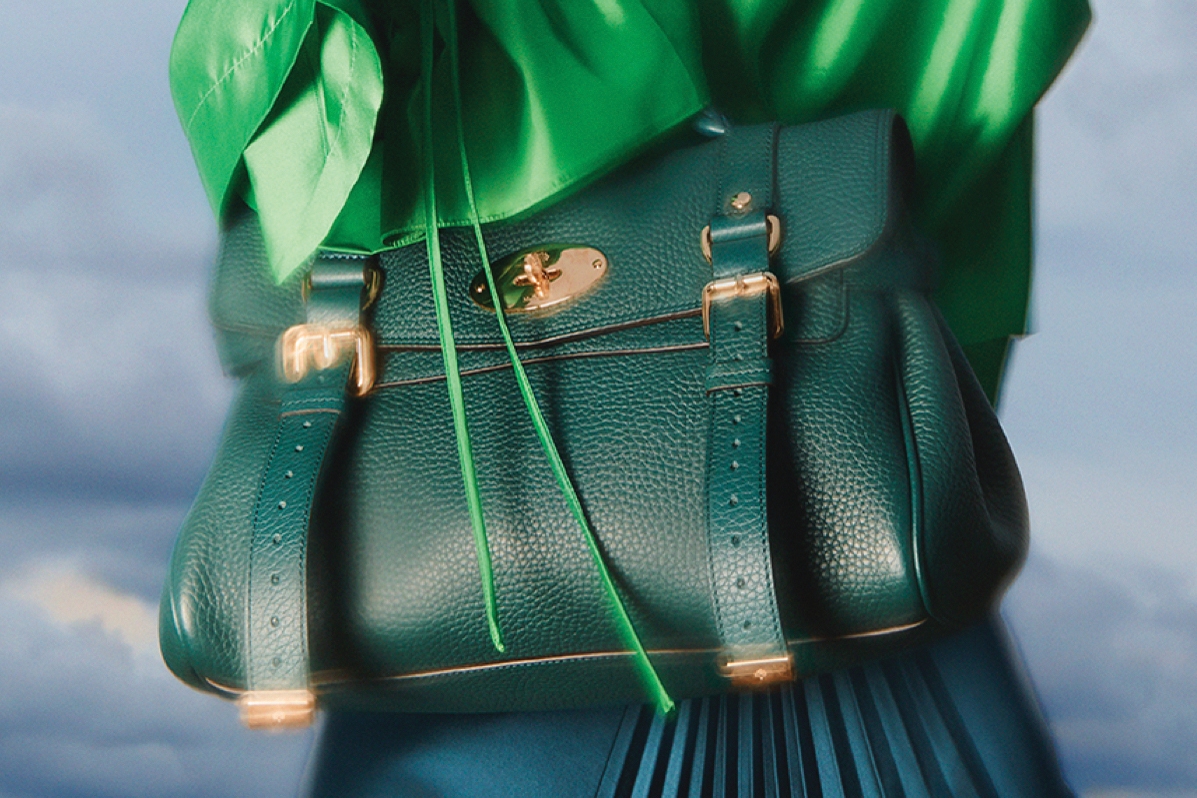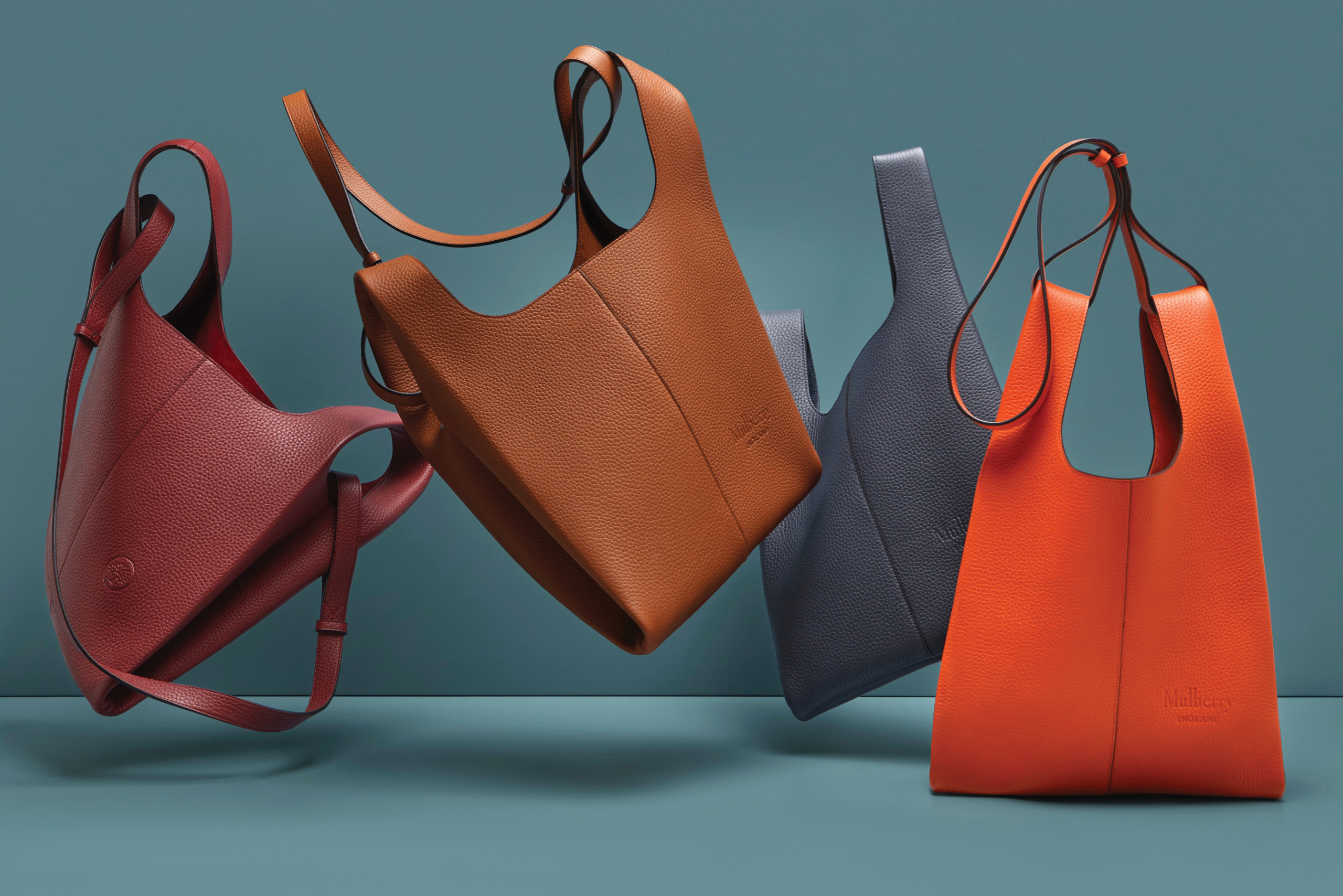
As its 50th anniversary approaches, Mulberry continues a legacy of playfully interpreting British heritage for modern lifestyles. Originally a family-run business founded in Somerset in 1971, Mulberry has grown to be the largest manufacturer of luxury leather goods in Britain, with two factories in Somerset producing over 50 per cent of its products. Its lifestyle accessories for men and women are available in more than 120 stores across 25 countries.
Mulberry’s founder, Roger Saul, started the business using scraps from the local leather factory, fashioning them into belts and chokers that he sold at London’s Portobello market. This passion for craft, sourcing materials responsibly, and making things to last, remains at the heart of the business. Leather sourcing is still a crucial factor in the brand’s responsible approach to manufacturing, with all leathers in the collection a by-product of the food industry and sourced from environmentally accredited tanneries. Mulberry’s design and sourcing teams are also constantly looking for innovative materials; their new lightweight Scotchgrain is made from recombined bio-plastics, and they work with ECONYL® regenerated nylon and sustainable cotton.

Sustainability is also a key consideration for operations: all Mulberry’s UK locations, including the factories, are carbon neutral and it sends zero waste to landfill. In line with the made to last ethos, customers are encouraged to repair rather than replace much-loved items. The brand offers a world-class repairs centre with leather and component archives going back 30 years, and a circular economy programme, the Mulberry Exchange, that invites customers to buy or sell back a pre-loved Mulberry bag.
Each new collection aims to improve on its sustainability goals. Last year saw the launch of the Portobello tote, Mulberry’s first 100 per cent sustainable leather bag, followed this year by the Sustainable Icons. This collection of the brand’s most beloved bags was crafted at the carbon neutral factories with its most sustainable leather, sourced from tanneries that have achieved a gold standard rating. The iconic Alexa was relaunched as part of this collection, with the timeless satchel proving as popular today as it was ten years ago, when it was dubbed one of the original It Bags.

Mulberry’s focus on community-building invites customers into their world through immersive experiences, from light installations to the My Local series of live music gigs. At the beginning of the Covid-19 crisis, the brand converted its factories to PPE production for the NHS and raised funds for the National Emergencies Trust by donating a percentage of proceeds from all sales. The temporary closure of stores also saw Mulberry revisit its service offerings, from complimentary personalisation and same-day delivery to personal appointments, available in-store or via video call for those who prefer to shop from home.
As Mulberry looks forward to their next 50 years, they remain firmly committed to building a sustainable legacy by making beautiful products that last, and that have a positive impact on the environment and their communities.